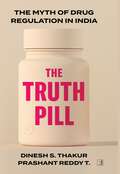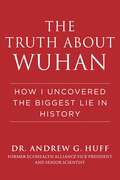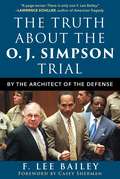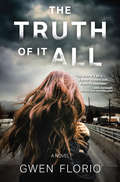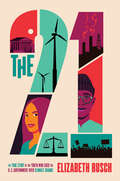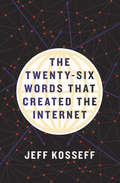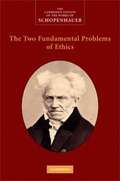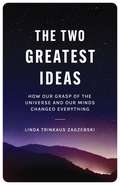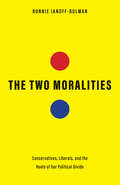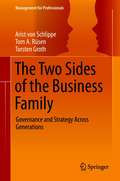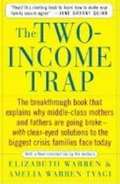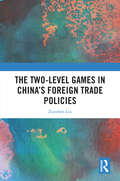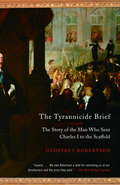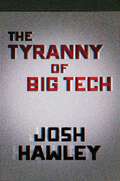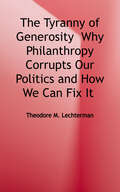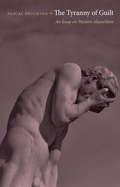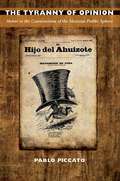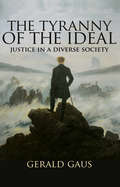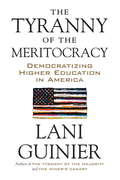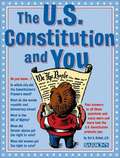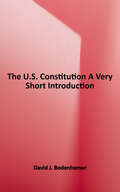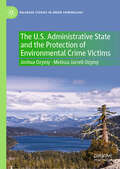- Table View
- List View
The Truth Pill: The Myth of Drug Regulation in India
by Dinesh Singh Thakur Prashant Reddy ThikkavarapuSince 2004, when the fraud at Ranbaxy, the largest Indian pharmaceutical company at the time first came to light, the Indian pharmaceutical industry and clinical research organizations have been rocked by a series of scandals after investigations by American and European drug regulators. While the West has responded to concerns about quality of &“Made in India&” medicine by blocking exports from many Indian pharmaceutical companies, the Indian government responded not with regulatory reform but conspiracy theories about &“vested interests&” working against India. More worryingly, the Indian state has also turned a blind eye to a far more serious quality crisis in its domestic pharmaceutical market. At times, these quality issues manifest themselves in the deaths of Indian citizens as happened in early 2020 when 11 children died in Jammu because of adulterated cough syrup. On other occasions, a dodgy drug approval process has led to the Indian regulator approving sales of drugs that have never been approved by regulators in the developed markets. The result is not just poor health outcomes but outsize profits for pharmaceutical companies manufacturing medicines that have never been validated through scientifically rigorous clinical trials for therapeutic evidence. These twin crises, in both the domestic and export markets, is because India has either outdated regulations or no regulations in some areas. Even the outdated regulations are enforced with kids gloves by drug inspectors and judicial magistrates who are ready to forgive even those whose drugs are found to contain barely any active ingredient or dangerously high levels of bacterial endotoxins. In a race for growth of the pharmaceutical industry, the Indian state has sacrificed scientific rigour and ignored the basic principles of public health. Given India&’s position as the pharmacy of the developing world, the failure of the Indian state is a problem for not just India but most of the developing world. This timely, important and compelling book based on deep research, questions and analyzes the actions of the institutions that are responsible for the safety and efficacy of the Indian drug supply in the context of the historical evolution of the Drugs Act 1940 from pre-Independence India to the present day. The future of Indian public health lies in responding to the issues raised in this book.
The Truth about Wuhan: How I Uncovered the Biggest Lie in History
by Dr. Andrew G. HuffShocking new insider information that shows what really happened in Wuhan, China, at the start of the COVID-19 outbreak and in the ensuing cover-up. The day that Dr. Andrew G. Huff left his senior scientist and vice president role at EcoHealth Alliance was one of the happiest days of his life due to the corruption he had witnessed at the organization. However, he never thought working there would be of any great consequence to the future. He was wrong. Because, as an EcoHealth Alliance insider, Dr. Huff had had a ringside seat to one of the biggest cover-ups in history. The Truth about Wuhan contains new research and a breakdown of how and why the development of COVID-19 in the United States and China was supported by the US government to collect intelligence on laboratories in China. Dr. Huff, an expert in the fields of bioterrorism and bio warfare, is a whistleblower who will show why the reasons the lab leak was covered up are incorrect. He worked on the classified research side of the program as a US government scientist. He knows the real how and why COVID-19 emerged. Besides exposing the conspiracy and cover-up, Dr. Huff also puts forth policy solutions and recommendations to prevent a lab leak virus from plaguing the world again. The Truth about Wuhan simply explains the complexity of the system that led to COVID-19&’s emergence; how the medical industrial complex grew and became entrenched in gain of function work after 9/11; why EcoHealth Alliance was the (almost) perfect intelligence collection cover; the policy actions and decision-making process as to why the United States government engaged in the COVID cover-up; how and why the United States swapped biotechnology with China and biomedical corporations; and the incentives for each of the actors or governments to engage and coordinate a global cover-up of COVID-19 origins. The Truth about Wuhan also shows how and why Dr. Anthony Fauci is intricately involved in the COVID cover-up; how scientists like EcoHealth Alliance president and CEO Dr. Peter Daszak rose to power and used their influence to corrupt science and the COVID origin investigation; and how the intelligence community likely orchestrated the cover-up with Dr. Anthony Fauci. Dr. Huff also provides personal harrowing accounts of how the US government waged a psychological operation against him to prevent him from speaking out. COVID-19 is the biggest lie, scandal, and intelligence failure in US history, and Dr. Andrew G. Huff is stepping out of the shadows to share his insider story about this failure that led to millions of deaths around the world.
The Truth about the O.J. Simpson Trial: By the Architect of the Defense
by F. Lee BaileyThe Definitive Account of the O.J. Simpson Trial, by Legendary Defense Attorney F. Lee BaileyIt was called &“The Trial of the Century.&” Beloved football sensation, O.J. Simpson was famous for his prowess on the field, his good looks, and his charm. But all that changed the night his ex-wife Nicole Brown Simpson and her friend Ron Goldman were brutally slaughtered in her front yard late at night on June 12, 1994. The media circus that consumed the news cycle for the next eighteen months would forever change the world's opinion of O.J. Simpson, despite the fact that the jury, after nearly a year of sequestration, came to their decision in just a few hours: Not Guilty. Although at least a dozen books have been written about the O.J. Simpson trial, from every possible perspective from provocative to sensationalistic, The Truth About the O.J. Simpson Trial is the most revealing because the writer was the Architect of the Defense. Bailey, shows definitively why the jury was correct in finding that the timeline of the evening made Simpson&’s presence at the murder scene impossible, which eclipses the question &“Did he do it?&” and establishes that he simply could not have done it. This book reveals shocking evidence of police corruption, mishandling of blood samples and other materials that formed the basis of the prosecution's case. Bailey includes convincing evidence that was not presented at the trial—including interviews, forensic results, and revelations about the case that have since come to light. Scathing, controversial, and, yes, entertaining, The Truth About the O.J. Simpson Trial will be read and studied by anyone interested in defending the innocent, the history of law enforcement in America, students of the Law, and all those who are still obsessed with &“The Trial of the Century.&”
The Truth of it All: A Novel
by Gwen FlorioA hot-button legal case fuels a community's smoldering hostility--but the dark secret at its heart could set the town ablaze. Public defender Julia Geary moves through life in simmering resentment--at her husband, a soldier killed in Iraq, leaving her a single mother; at her low-paying job; and at her overbearing mother-in law, whose home she shares. She longs for a breakout case, and it arrives when members of the high school soccer team report seeing a teammate--Iraqi refugee Sami Mohammed--assaulting a girl in the locker room.In a town where animosity against refugees has already reached a fever pitch, Julia throws all her energy into Sami's defense. She finds an ally in high school principal Dom Parrish, who believes Sami is innocent, and the case suddenly turns red hot.Then she begins receiving vicious threats against her family, and a senseless act of violence leaves Sami in a coma. And finally, a crop of new evidence emerges that points to the town's most prominent citizens and pits Julia against powerful forces set on burying the truth once and for all.If Sami survives and Julia can prove him innocent, it will be the case of a lifetime. But now it's her life that's on the line.
The Twentieth Century German Art Exhibition: Answering Degenerate Art in 1930s London (Routledge Research in Art Museums and Exhibitions)
by Lucy WasensteinerThis book represents the first study dedicated to Twentieth Century German Art, the 1938 London exhibition that was the largest international response to the cultural policies of National Socialist Germany and the infamous Munich exhibition Degenerate Art. Provenance research into the catalogued exhibits has enabled a full reconstruction of the show for the first time: its contents and form, its contributors and their motivations, and its impact both in Britain and internationally. Presenting the research via six case-study exhibits, the book sheds new light on the exhibition and reveals it as one of the largest émigré projects of the period, which drew contributions from scores of German émigré collectors, dealers, art critics, and from the ‘degenerate’ artists themselves. The book explores the show’s potency as an anti-Nazi statement, which prompted a direct reaction from Hitler himself.
The Twenty-One: The True Story of the Youth Who Sued the U.S. Government Over Climate Change
by Elizabeth RuschCompelling and timely, award-winning author Elizabeth Rusch’s The Twenty-One tells the gripping inside story of the ongoing landmark federal climate change lawsuit, Juliana vs. United States of America. The Twenty-One is for readers of Christina Soontornvat’s All Thirteen, fans of Steve Sheinkin’s books, and anyone interested in the environment and climate change, as well as youth activism, politics and government, and the law. From severe flooding in Louisiana to wildfires in the Pacific Northwest to melting permafrost in Alaska, catastrophic climate events are occurring more frequently—and severely—than ever. And these events are having a direct impact on the lives (and futures) of young people and their families. In the ongoing landmark case Juliana vs. United States, twenty-one young plaintiffs claim that the government’s support of the fossil-fuel industry is actively contributing to climate change, and that all citizens have a constitutional right to a stable climate—especially children and young adults, because they cannot vote and will inherit the problems of the future.Elizabeth Rusch’s The Twenty-One is a gripping legal and environmental thriller that tells the story of twenty-one young people and their ongoing case against the U.S. government for denying their constitutional right to life and liberty. A rich, informative, and multifaceted read, The Twenty-One stars the young plaintiffs and their attorneys; illuminates the workings of the United States’s judicial system and the relationship between government, citizens’ rights, and the environment; and asks readers to think deeply about the future of our planet. Features extensive backmatter, including a timeline, glossary, call to action, additional resources, and photographs.
The Twenty-Six Words That Created the Internet
by Jeff Kosseff"No provider or user of an interactive computer service shall be treated as the publisher or speaker of any information provided by another information content provider."Did you know that these twenty-six words are responsible for much of America's multibillion-dollar online industry? What we can and cannot write, say, and do online is based on just one law—a law that protects online services from lawsuits based on user content. Jeff Kosseff exposes the workings of Section 230 of the Communications Decency Act, which has lived mostly in the shadows since its enshrinement in 1996. Because many segments of American society now exist largely online, Kosseff argues that we need to understand and pay attention to what Section 230 really means and how it affects what we like, share, and comment upon every day.The Twenty-Six Words That Created the Internet tells the story of the institutions that flourished as a result of this powerful statute. It introduces us to those who created the law, those who advocated for it, and those involved in some of the most prominent cases decided under the law. Kosseff assesses the law that has facilitated freedom of online speech, trolling, and much more. His keen eye for the law, combined with his background as an award-winning journalist, demystifies a statute that affects all our lives –for good and for ill. While Section 230 may be imperfect and in need of refinement, Kosseff maintains that it is necessary to foster free speech and innovation. For filings from many of the cases discussed in the book and updates about Section 230, visit jeffkosseff.com
The Two Fundamental Problems of Ethics
by Arthur Schopenhauer Christopher JanawayThe purpose of the Cambridge Edition of the Works of Schopenhauer is to offer translations of the best modern German editions of Schopenhauer's work in a uniform format suitable for Schopenhauer scholars, together with philosophical introductions and full editorial apparatus. Arthur Schopenhauer's The Two Fundamental Problems of Ethics (1841) consists of two groundbreaking essays: On the Freedom of the Will and On the Basis of Morals. The essays make original contributions to ethics and display Schopenhauer's erudition, prose-style and flair for philosophical controversy, as well as philosophical views that contrast sharply with the positions of both Kant and Nietzsche. Written accessibly, they do not presuppose the intricate metaphysics which Schopenhauer constructs elsewhere. This is the first English edition of these works to re-unite both essays in one volume. It offers a new translation by Christopher Janaway, together with an introduction, editorial notes on Schopenhauer's vocabulary and the different editions of his essays, a chronology of his life, a bibliography and a glossary of names.
The Two Greatest Ideas: How Our Grasp of the Universe and Our Minds Changed Everything (Soochow University Lectures in Philosophy #6)
by Linda Trinkaus ZagzebskiTwo simple yet tremendously powerful ideas that shaped virtually every aspect of civilizationThis book is a breathtaking examination of the two greatest ideas in human history. The first is the idea that the human mind can grasp the universe. The second is the idea that the human mind can grasp itself. Acclaimed philosopher Linda Zagzebski shows how the first unleashed a cultural awakening that swept across the world in the first millennium BCE, giving birth to philosophy, mathematics, science, and virtually all the major world religions. It dominated until the Renaissance, when the discovery of subjectivity profoundly transformed the arts and sciences. This second great idea governed our perception of reality up until the dawn of the twenty-first century.Zagzebski explores how the interplay of the two ideas led to conflicts that have left us ambivalent about the relationship between the mind and the universe, and have given rise to a host of moral and political rifts over the deepest questions human beings face. Should we organize civil society around the ideal of living in harmony with the world or that of individual autonomy? Zagzebski explains how the two greatest ideas continue to divide us today over issues such as abortion, the environment, free speech, and racial and gender identity.This panoramic book reveals what is missing in our conception of ourselves and the world, and imagines a not-too-distant future when a third great idea, the idea that human minds can grasp each other, will help us gain an idea of the whole of reality.
The Two Moralities: Conservatives, Liberals, and the Roots of Our Political Divide
by Ronnie Janoff-BulmanThe most complete picture to date of the moral worlds of the political left and right and how their different views relate to specific political issues The left and right will always have strong policy disagreements, but constructive debate and negotiation are not possible when each side demonizes the other. We need to move past our poisonous politics. In this book, social psychologist Ronnie Janoff-Bulman provides a new framework for understanding why and how we disagree. Janoff-Bulman asks readers to consider the challenging possibility that both liberalism and conservatism are morally based and reflect genuine concern for the country. Moral psychology is an invaluable lens for understanding the roots of political differences. She presents a &“Model of Moral Motives&” that maps the most fundamental motivations recognized by psychology—approach and avoidance—onto these differences. Liberal morality focuses on providing for the group&’s well-being and ensuring social justice. Conservative morality focuses on protecting the group from threats and preserving order. These moralities can account for the psychological differences between liberals and conservatives and for why certain positions resonate on each side of the political spectrum. Why, for example, do conservatives oppose abortion and favor unfettered free markets while liberals favor a woman&’s right to choose and economic regulation? Understanding that our political differences are rooted in two natural forms of morality can help us begin to detoxify our politics.
The Two Sides of the Business Family: Governance and Strategy Across Generations (Management for Professionals)
by Tom A. Rüsen Arist von Schlippe Torsten GrothThis book focuses on a central success factor for family businesses: maintaining the decision-making ability over generations while not jeopardizing the business due to family conflict, inefficient governance structures, or lack of identification. The authors identify that this is not as easy as the endeavor to bring two social systems together with contradicting logic (family and business) leads to many dangerous pitfalls. This book presents outcomes of a unique research project in which family managers of eleven of the oldest and largest German family businesses, at least the fourth generation, met for more than three years on a regular basis and presented the essence of their family governance structures to each other and to the authors. It was a joint “learning journey” that admits identifying twelve core questions that these families had been answering to keep up the relationship between family and business successfully over generations. Obviously, there is no “right” answer to these questions. The key to success is rather engaging the families in a process to find out their own answers and make them aware of the “two sides”: being a family is different from being a business family.
The Two-Income Trap
by Elizabeth Warren Amelia Warren TyagiIn this revolutionary exposé, Harvard Law School bankruptcy expert Elizabeth Warren and financial consultant Amelia Tyagi show that today's middle-class parents are increasingly trapped by financial meltdowns. Astonishingly, sending mothers to work has made families more vulnerable to financial disaster than ever before. Today's two-income family earns 75% more money than its single-income counterpart of a generation ago, but has 25% less discretionary income to cover living costs. This is "the rare financial book that sidesteps accusations of individual wastefulness to focus on institutional changes," raved the Boston Globe. Warren and Tyagi reveal how the ferocious bidding war for housing and education has silently engulfed America's suburbs, driving up the cost of keeping families in the middle class. The authors show why the usual remedies-child-support enforcement, subsidized daycare, and higher salaries for women-won't solve the problem. But as the Wall Street Journal observed, "The book is brimming with proposed solutions to the nail-biting anxiety that the middle class finds itself in: subsidized day care, school vouchers, new bank regulation, among other measures. " From Senator Edward M. Kennedy to Dr. Phil to Bill Moyers, The Two-Income Trap has created a sensation among economists, politicians, and families-all those who care about America's middle-class crisis.
The Two-Income Trap
by Elizabeth Warren Amelia Warren TyagiIn this revolutionary exposé, Harvard Law School bankruptcy expert Elizabeth Warren and financial consultant Amelia Tyagi show that today's middle-class parents are increasingly trapped by financial meltdowns. Astonishingly, sending mothers to work has made families more vulnerable to financial disaster than ever before. Today's two-income family earns 75% more money than its single-income counterpart of a generation ago, but has 25% less discretionary income to cover living costs. This is "the rare financial book that sidesteps accusations of individual wastefulness to focus on institutional changes," raved the Boston Globe. Warren and Tyagi reveal how the ferocious bidding war for housing and education has silently engulfed America's suburbs, driving up the cost of keeping families in the middle class. The authors show why the usual remedies-child-support enforcement, subsidized daycare, and higher salaries for women-won't solve the problem. But as the Wall Street Journal observed, "The book is brimming with proposed solutions to the nail-biting anxiety that the middle class finds itself in: subsidized day care, school vouchers, new bank regulation, among other measures. " From Senator Edward M. Kennedy to Dr. Phil to Bill Moyers, The Two-Income Trap has created a sensation among economists, politicians, and families-all those who care about America's middle-class crisis.
The Two-level Games in China’s Foreign Trade Policies
by Zuozhen LiuApplying two-level game theory and rational decision-making analysis, this book explores how China navigates domestic constraints and international pressures to achieve optimal outcomes in its foreign trade policy.The author examines China’s accession to the WTO and the evolving trade tensions between China and the US. She analyzes some of the most contentious trade issues in the contemporary landscape, such as China’s economic model, technology restrictions, and non-tariff barriers. Through a case study on China’s solar photovoltaic (PV) manufacturing sector, she illustrates how these trade issues influence policy-making within a specific industry. In conclusion, the book evaluates China’s strategies for navigating its foreign trade within the broader global trading system – it considers the prospects for a potential "win-set" in future trade negotiations, offering insights into how China might navigate these complexities moving forward.The book will appeal to academics specializing in international trade law, international relations, and China studies.
The Tyrannicide Brief: The Story of the Man Who Sent Charles I to the Scaffold
by Geoffrey RobertsonCharles I waged civil wars that cost one in ten Englishmen their lives. But in 1649 Parliament was hard put to find a lawyer with the skill and daring to prosecute a king who claimed to be above the law. In the end, they chose the radical lawyer John Cooke, whose Puritan conscience, political vision, and love of civil liberties gave him the courage to bring the king to trial. As a result, Charles I was beheaded, but eleven years later Cooke himself was arrested, tried, and executed at the hands of Charles II.Geoffrey Robertson, a renowned human rights lawyer, provides a vivid new reading of the tumultuous Civil War years, exposing long-hidden truths: that the king was guilty, that his execution was necessary to establish the sovereignty of Parliament, that the regicide trials were rigged and their victims should be seen as national heroes. Cooke’s trial of Charles I, the first trial of a head of state for waging war on his own people, became a forerunner of the trials of Augusto Pinochet, Slobodan Milosevic, and Saddam Hussein. The Tyrannicide Brief is a superb work of history that casts a revelatory light on some of the most important issues of our time.
The Tyranny of Big Tech
by Josh HawleyThe reign of Big Tech is here, and Americans&’ First Amendment rights hang by a keystroke. Amassing unimaginable amounts of personal data, giants like Google, Facebook, Amazon, and Apple—once symbols of American ingenuity and freedom—have become a techno-oligarchy with overwhelming economic and political power. Decades of unchecked data collection have given Big Tech more targeted control over Americans&’ daily lives than any company or government in the world. In The Tyranny of Big Tech, Senator Josh Hawley of Missouri argues that these mega-corporations—controlled by the robber barons of the modern era—are the gravest threat to American liberty in decades. To reverse course, Hawley argues, we must correct progressives&’ mistakes of the past. That means recovering the link between liberty and democratic participation, building an economy that makes the working class strong, independent, and beholden to no one, and curbing the influence of corporate and political elites. Big Tech and its allies do not deal gently with those who cross them, and Senator Hawley proudly bears his own battle scars. But hubris is dangerous. The time is ripe to overcome the tyranny of Big Tech by reshaping the business and legal landscape of the digital world.
The Tyranny of Generosity: Why Philanthropy Corrupts Our Politics and How We Can Fix It
by Theodore M. LechtermanThe practice of philanthropy, which releases private property for public purposes, represents in many ways the best angels of our nature. But this practice's noteworthy virtues often obscure the fact that philanthropy also represents the exercise of private power. <p><p>In The Tyranny of Generosity, Theodore Lechterman shows how this private power can threaten the foundations of a democratic society. The deployment of private wealth for public ends may rival the authority of communities to determine their own affairs. And, in societies characterized by wide disparities in wealth, philanthropy often combines with background inequalities to make public decisions overwhelmingly sensitive to the preferences of the rich. Allowing private wealth to dictate social outcomes collides with core commitments of a democratic society, a society in which people are supposed to determine their common affairs together, on equal terms. <p><p>But why exactly is democracy valuable? How should these values be weighed against the liberty of donors and the many social benefits that philanthropy promises? Lechterman explores these questions by examining various topics in the practice of philanthropy: the respective roles of philanthropy and government, public subsidies for private giving, the use of donations for political speech, instruments of perpetual giving, the rise in giving by commercial corporations, and "effective altruism" as a guide for individual giving. <p><p>These studies build to a surprising conclusion: realizing the democratic ideal may be impossible without philanthropy—but making philanthropy safe for democracy also requires fundamental changes to policy and practice.
The Tyranny of Guilt: An Essay on Western Masochism
by Pascal BrucknerWhy the West must overcome its guilty conscience to foster a better global futureFascism, communism, genocide, slavery, racism, imperialism—the West has no shortage of reasons for guilt. And, indeed, since the Holocaust and the end of World War II, Europeans in particular have been consumed by remorse. But Pascal Bruckner argues that guilt has now gone too far. It has become a pathology, and even an obstacle to fighting today's atrocities. Bruckner, one of France's leading writers and public intellectuals, argues that obsessive guilt has obscured important realities. The West has no monopoly on evil, and has destroyed monsters as well as created them—leading in the abolition of slavery, renouncing colonialism, building peaceful and prosperous communities, and establishing rules and institutions that are models for the world. The West should be proud—and ready to defend itself and its values. In this, Europeans should learn from Americans, who still have sufficient self-esteem to act decisively in a world of chaos and violence. Lamenting the vice of anti-Americanism that grips so many European intellectuals, Bruckner urges a renewed transatlantic alliance, and advises Americans not to let recent foreign-policy misadventures sap their own confidence. This is a searing, provocative, and psychologically penetrating account of the crude thought and bad politics that arise from excessive bad conscience.
The Tyranny of Opinion: Honor in the Construction of the Mexican Public Sphere
by Pablo PiccatoIn the mid-to-late nineteenth century, as Mexico emerged out of decades of civil war and foreign invasion, a modern notion of honor--of one's reputation and self-worth--became the keystone in the construction of public culture. Mexicans gave great symbolic, social, and material value to honor. Only honorable men could speak in the name of the public. Honor earned these men, and a few women, support and credit, and gave civilian politicians a claim to authority after an era dominated by military heroism. Tracing how notions of honor changed in nineteenth-century Mexico, Pablo Piccato examines legislation, journalism, parliamentary debates, criminal defamation cases, personal stories, urban protests, and the rise and decline of dueling in the 1890s. He highlights the centrality of notions of honor to debates over the nature of Mexican liberalism, describing how honor helped to define the boundaries between public and private life; balance competing claims of free speech, public opinion, and the protection of individual reputations; and motivate politicians, writers, and other men to enter public life. As Piccato explains, under the authoritarian rule of Porfirio Daz, the state became more active in the protection of individual reputations. It implemented new restrictions on the press. This did not prevent people from all walks of life from defending their honor and reputations, whether in court or through violence. The Tyranny of Opinion is a major contribution to a new understanding of Mexican political history and the evolution of Mexican civil society.
The Tyranny of Values and Other Texts
by Carl Schmitt David Pan Samuel Zeitlin Russell BermanWritten during the Weimar Republic, the Nazi era, and the Cold War, this collection of occasional pieces provides an instructive look at the ways in which Carl Schmitt employed his theories in order to make judgments about contemporary historical events and problems. Covering topics such as the political significance of universalism and jurisprudence, the meaning of the partisan, the world-historical significance of the Cold War, the deterioration of metaphysics into "values," the relationship between theoretical concepts and concrete historical situations, and his views on thinkers such as Machiavelli, Bodin, and Rousseau, these essays establish a revealing counterpoint to his more formal work. They react on the one hand directly to contemporary political questions and demonstrate the way in which he saw the immediate historical significance of his ideas. On the other hand, he also feels free to provide in these pieces the kinds of methodological reflections that help us to better understand the particular epistemological framework that makes his thought so unique.
The Tyranny of the Ideal: Justice in a Diverse Society
by Gerald GausIn his provocative new book, The Tyranny of the Ideal, Gerald Gaus lays out a vision for how we should theorize about justice in a diverse society. Gaus shows how free and equal people, faced with intractable struggles and irreconcilable conflicts, might share a common moral life shaped by a just framework. He argues that if we are to take diversity seriously and if moral inquiry is sincere about shaping the world, then the pursuit of idealized and perfect theories of justice--essentially, the entire production of theories of justice that has dominated political philosophy for the past forty years--needs to change.Drawing on recent work in social science and philosophy, Gaus points to an important paradox: only those in a heterogeneous society--with its various religious, moral, and political perspectives--have a reasonable hope of understanding what an ideally just society would be like. However, due to its very nature, this world could never be collectively devoted to any single ideal. Gaus defends the moral constitution of this pluralistic, open society, where the very clash and disagreement of ideals spurs all to better understand what their personal ideals of justice happen to be.Presenting an original framework for how we should think about morality, The Tyranny of the Ideal rigorously analyzes a theory of ideal justice more suitable for contemporary times.
The Tyranny of the Meritocracy
by Lani GuinierA fresh and bold argument for revamping our standards of "merit" and a clear blueprint for creating collaborative education models that strengthen our democracy rather than privileging individual elitesStanding on the foundations of America's promise of equal opportunity, our universities purport to serve as engines of social mobility and practitioners of democracy. But as acclaimed scholar and pioneering civil rights advocate Lani Guinier argues, the merit systems that dictate the admissions practices of these institutions are functioning to select and privilege elite individuals rather than create learning communities geared to advance democratic societies. Having studied and taught at schools such as Harvard University, Yale Law School, and the University of Pennsylvania Law School, Guinier has spent years examining the experiences of ethnic minorities and of women at the nation's top institutions of higher education, and here she lays bare the practices that impede the stated missions of these schools. Goaded on by a contemporary culture that establishes value through ranking and sorting, universities assess applicants using the vocabulary of private, highly individualized merit. As a result of private merit standards and ever-increasing tuitions, our colleges and universities increasingly are failing in their mission to provide educational opportunity and to prepare students for productive and engaged citizenship. To reclaim higher education as a cornerstone of democracy, Guinier argues that institutions of higher learning must focus on admitting and educating a class of students who will be critical thinkers, active citizens, and publicly spirited leaders. Guinier presents a plan for considering "democratic merit," a system that measures the success of higher education not by the personal qualities of the students who enter but by the work and service performed by the graduates who leave. Guinier goes on to offer vivid examples of communities that have developed effective learning strategies based not on an individual's "merit" but on the collaborative strength of a group, learning and working together, supporting members, and evolving into powerful collectives. Examples are taken from across the country and include a wide range of approaches, each innovative and effective. Guinier argues for reformation, not only of the very premises of admissions practices but of the shape of higher education itself.From the Hardcover edition.
The U. S. Constitution And You
by Syl Sobel Denise GilgannonAll elementary school students learn about the history of the U. S. Constitution when they first begin social studies. This book is different. It tells boys and girls about the great American document itself -- explaining exactly what the Constitution does, as well as how it affects and protects people today. Kids discover how the Constitution provides for the federal government's three branches -- legislative, executive, and judicial. Then they see how it gives all citizens many rights, including the right to vote, to enjoy freedom of speech and the press, to worship - or not worship - according to one's religious beliefs, to disagree openly with government policy, and to defend oneself in courts of law when accused of crimes or civil wrongs. Kids also see how, according to the Constitution, many rights are kept beyond control of the federal government, and are reserved for the separate states, communities, and individuals. This book's language is clear and simple. It cites many examples that relate directly to each student's own experiences.
The U. S. Constitution: A Very Short Introduction (Very Short Introductions)
by David J. BodenhamerThough the U.S. Constitution was ratified in 1788, its impact on our lives is as recent as today's news. Claims and counterclaims about the constitutionality of governmental actions are a habit of American politics. This document, which its framers designed to limit power, often has made political conflict inevitable. It also has accommodated and legitimized the political and social changes of a vibrant, powerful democratic nation. A product of history's first modern revolution, the Constitution embraced a new formula for government: it restrained power on behalf of liberty, but it also granted power to promote and protect liberty. <p><p>The U.S. Constitution: A Very Short Introduction explores the major themes that have shaped American constitutional history: federalism, the balance of powers, property, representation, equality, rights, and security. Informed by the latest scholarship, this book places constitutional history within the context of American political and social history. As our nation's circumstances have changed, so has our Constitution. <p><p>Today we face serious challenges to the nation's constitutional legacy. Endless wars, a sharply divided electorate, economic inequality, and immigration, along with a host of other issues, have placed demands on government and on society that test our constitutional values. Understanding how the Constitution has evolved will help us adapt its principles to the challenges of our age. <p><p>ABOUT THE SERIES: The Very Short Introductions series from Oxford University Press contains hundreds of titles in almost every subject area. These pocket-sized books are the perfect way to get ahead in a new subject quickly. Our expert authors combine facts, analysis, perspective, new ideas, and enthusiasm to make interesting and challenging topics highly readable.
The U.S. Administrative State and the Protection of Environmental Crime Victims (Palgrave Studies in Green Criminology)
by Joshua Ozymy Melissa Jarrell OzymyThis accessible book provides the first comprehensive analysis of environmental crime victims within criminal prosecutions in the United States. By combining empirical analysis of criminal investigations undertaken by the U.S. Environmental Protection Agency from 1983-2022 with narrative discussion of numerous related criminal prosecutions, it provides novel insights to help advance a stronger empirical understanding of how the administrative state protects victims of environmental harm, punishes environmental offenders, and aids in furthering the development of an environmental victimology.
